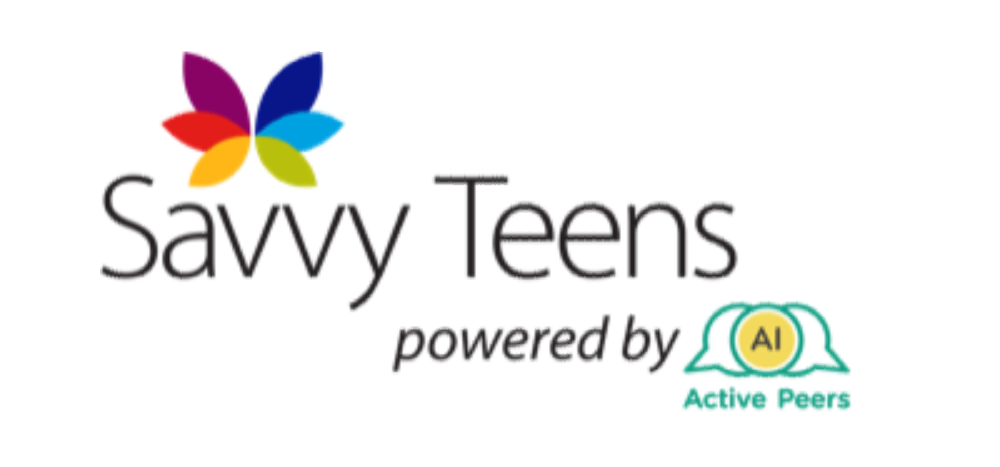5 Best Practices for a Successful Mentoring Relationship
"A mentor empowers a person to see a possible future and believe it can be obtained." - Shawn Hitchcock
Mentoring in schools and workplaces is often employed for the mentee’s growth and development. By building a reciprocal relationship, mentees can learn from their mentors and achieve their goals (Bansal, 2020). However, mentors and mentees are often left unclear by their school or company about the role they play in the relationship and how they can mutually benefit from each other (Bansal, 2020). Thus, having a clear set of guidelines can help mentors and mentees achieve their fullest potential. Although mentoring is not a one-size-fits-all, certain practices can help develop a successful mentoring relationship. Hence, the following article will suggest 5 best practices for building a successful mentor-mentee relationship.
Choosing the Right Mentor
First and foremost, it is important for mentees to choose the right mentor for their academic or career goals. Doing research on the mentor can give mentees the head start they need. The mentees can talk to the teachers in the school and or utilize social media, such as LinkedIn, to get a sense of the mentor’s professional career and past experiences (Agarwal, 2018). Instead of simply relying on others’ testimonials, mentees should do their own research to ensure that their mentor has experienced the kind of experiences they have had, including “experiencing the highs and lows to be where [they] want to be in [their] business in a few years’ time” (Agarwal, 2018). If the mentees are working towards a specific position in their business, then they should aim at finding a mentor who is in the same position as the one they are working towards so that the mentor is able to provide them with “more specific and tangible feedback and guidance” (Barbee, 2019). In case a mentee is still figuring out what their goals are and want more advice on creating their ideal career path, then seeking out a career mentor could help them get the specific advice they need (Barbee, 2019).
If there is a third-party involved in matching mentors with mentees, the first step for mentees and mentors would be to fill out a matching form, which should include the following three components (Mentoring Complete, 2019). Firstly, mentors and mentees should indicate the competencies they want to mentor or be mentored in so that mentors and mentees with the same competencies can be matched (Mentoring Complete, 2019). This can allow both parties to have a focus as they begin their mentoring journey. Secondly, a personality test should be included so that mentors and mentees with compatible personalities can be matched together (Mentoring Complete, 2019). Lastly, a ranking of key roles, such as teacher, counselor and friend, can allow mentees to indicate the type of mentor they are looking for and allow mentors to decide the kind of mentor they want to be (Mentoring Complete, 2019). After the mentors and mentees have completed the form, the matching process can then be facilitated either through manual or software matching (Mentoring Complete, 2019). Manual matching is rather subjective and requires a program managing committee to hash out matches based on the information provided in the matching forms (Mentoring Complete, 2019). However, this can be a time-consuming process as it requires days of discussion to ensure that the right matches are made. On the other hand, a lot of organizations have recently turned towards using online algorithms to ensure a more objective matching (Mentoring Complete, 2019). The use of mentor matching software also saves a lot of time for the mentors, mentees and program managing committee.
Setting Clear Expectations
Setting clear expectations on the mentee’s goals and the mentoring relationship in the beginning can ensure successful mentoring. If there are no clear expectations on what the mentees’ goals are or what they hope to get out of the mentoring relationship, then it would be difficult for the mentors to figure out what is required of them and what they can do to ensure the mentees’ success (Barbee, 2019). This would lead to both mentees and mentors wasting their time and blindly continuing with their mentoring relationship without a clear path ahead (Barbee, 2019). Therefore, it is essential to “clarify the mentee’s expectations for the mentor-mentee relationship and their needs related to [academic or] career advancement” (Michigan State University, 2019). This could be done by establishing clear expectations for the mentoring relationship, including “time commitment, meeting schedule, and ground rules” (Michigan State University, 2019). A mentor can also be expected to share their knowledge, guidance, perspective and network with their mentees in a friendly yet professional environment (Qooper Mentoring Software, 2018). However, ultimately, it is up to the mentee to decide what to do with the mentor’s input (Qooper Mentoring Software, 2018).
Establishing Clear Boundaries
An effective mentor-mentee relationship requires a professional relationship (Khidekel, 2019). As mentors and mentees become closer and the relationship grows, lines can become blurred and there is a risk of mixing personal with professional life (Barbee, 2019). A mentoring session could then turn into a rant session about things going not so well in the mentee’s personal life (Barbee, 2019). Although personal issues might be “a part of the deal in the mentoring relationship” as sometimes personal life could affect one’s professional life, there is a risk of making the mentor uncomfortable by sharing too much personal information if such boundaries had not been clearly defined (Barbee, 2019). To prevent this from happening, it is best to establish clear boundaries in the beginning of the relationship as to what is and is not acceptable to talk about in the mentoring sessions. Moreover, boundaries need to be established in terms of contacting the mentors. At the beginning of a new mentoring relationship, mentors should clearly communicate about how they can be reached, especially in terms of the modes of communication and the mentor’s working hours (Khidekel, 2019). Without setting such boundaries, the mentee runs the risk of contacting the mentor outside of office hours, thus crossing the lines of their personal and professional lives.
Establishing Mentee’s Goals
In the beginning, a mentoring session should be dedicated to understanding the mentee’s needs and goals (Qooper Mentoring Software, 2018). According to Bansal (2020), “a mentor-mentee relationship that’s based on ad hoc needs without establishing clear goals does not last long”. Thus, the mentee has to first “list down the goals that they wish to achieve with the mentor’s help” (Bansal, 2020). Then, a plan for both the mentee’s short-term and long-term goals should be created, and a timeframe has to be set by the mentee and mentor to achieve those goals (Bansal, 2020). As it might sometimes take a few tries before the desired results are achieved, both parties should hold each other accountable and should not give up when faced with multiple difficulties and setbacks (Bansal, 2020). After establishing goals, it is important to monitor the progress and check-in with one another to see how the mentoring relationship is going (Barbee, 2019). Barbee (2019) asserts that regular check-ins between mentors and mentees can help to “evaluate and assess the goals, where they started, where they see this going and make adjustments if needed”.
Effective Communication
Effective communication is the key to making the partnership between mentors and mentees work as it not only establishes trust and credibility but also provides a clear understanding of the mentee’s goals and expectations (Agarwal, 2018). In the beginning, the preferred mode of communication and office hours with the mentor should be clearly established. Apart from this, the mentee should be proactive in tracking and communicating progress towards their goals with their mentors (Bansal, 2010). A mentee should also take the initiative to prepare for each meeting and create an agenda in advance so as to make the most out of the mentoring session (Agarwal, 2018). This can help the session to remain focused on the assistance the mentee really needs from their mentor and will allow them to ask their mentors specific questions to help them achieve their goals (Khidekel, 2019). After each meeting, it is also recommended for mentees to summarize the discussion and action items to send to the mentor for their future reference (Bansal, 2010).
On the other hand, the mentor should come prepared to guide their mentee and impart wisdom and knowledge (Agarwal, 2018). During the discussion, “the mentor should be open, direct and provide an objective perspective” (Agarwal, 2018). Apart from holding the mentee accountable and reminding them of their goals, the mentor should also offer positive yet sincere feedback to keep the mentee motivated (Agarwal, 2018). The mentor should aim at providing “a non-judgmental and non-biased platform where the mentee feels comfortable discussing their business ideas without fear” (Agarwal, 2018). If the mentor feels the time is right, then they can also challenge and encourage their mentee to step out of their comfort zone and take risks (Agarwal, 2018). Such communication strategies employed by the mentor can help to build a strong foundation with the mentee.
References
Agarwal, P. (2018, August 28). Top Tips for a Successful Mentor-Mentee Relationship.
Bansal, V. (2020, October 15). Mentorship: Key to Effective Mentor and Mentee
Relationship. Tech Hello. https://www.techtello.com/mentor-mentee-relationship/
Barbee, C. M. (2019). 9 Guidelines to Ensure Your Mentor-Mentee Relationship is
Successful. The CEO Co. https://theceo.co/9mentorshiptips/
Khidekel, M. (2019, March 29). 12 Keys for a Successful Mentor-Mentee Relationship.
Thrive Global. https://thriveglobal.com/stories/tips-wisdom-successful-professional-mentor-mentee-relationship/
Mentoring Complete. (2019). Making Successful Matches Between Mentors and Mentees.
Michigan State University. (2019). Best Practices for Mentors and Mentees in Academic
Settings. https://aan.msu.edu/mentoring/best-practices-for-mentors-and-mentees-in-academic-settings/
Qooper Mentoring Software. (2018, December 7). 8 Good Practices for Both Mentors and
Mentees in an Ideal Mentoring Relationship. Medium.












